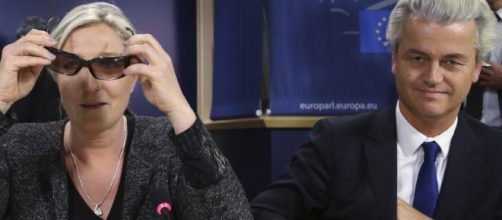Donald Trump ’s win in the American presidential election in November had raised fears of a wave of victories by far right wing parties in Europe. His use of anti migrant rhetoric and particularly directed towards Moslems were felt by many in the Old Continent distressed by the waves of refugees fleeing from the trouble spots in the Middle East and Africa. Holland yesterday showed that the populist wave was not inevitable.
Freedom Party
Over the last few months Geert Wilders of the Dutch Freedom Party seemed to be riding a wave that would have taken him to power.
His open admiration for Donald Trump’s anti migrant programme and his intention to withdraw Holland from the european union worried mainstream politicians and were echoed by other far right groups in other European countries.
Until the last few days hopes of a win by the Party were reflected in the polls but as the day drew nearer the polls seemed to be flagging. In the end Dutch voters came out in droves and the election was won by sitting Prime Minister Mark Rutte and his centre right VVD Party with a bigger than expected margin in a clear rebuttal of the populist politician.
The big turnout for the election combined with the fact that even with an increased parliamentary presence of 5 seats the Freedom Party did not achieve the expected level of support, the result showed that despite the problem of migration the Dutch had not abandoned the ideals of the European Union.
In fact, the rise of the GreenLeft in the Dutch poll may indicate a stronger liberal tendency in the country than expected. This result may well meant that the Greens will play a major role in the formation of the new ruling coalition.
Relief and tactics
This result relieved many in Europe, beginning in France and Germany which will also go to the polls this year.
The person who would have been most disappointed and worried by this result would be Marine Le Pen, the candidate for the French Presidency of the far right National Front. She was hoping that the Trump victory followed by a Wilders win would have given her a chance of victory in the April and May votes.
Currently the French polls are giving Le Pen the possibility of reaching the play off poll on May 7th, as did her father Jean-Marie Le Pen in 2002, but with the hope that she would go one step further.
Yesterday’s Dutch result will almost certainly mean that the opposing Parties will repeat their tactics of 2002 and fall behind the other candidate to ensure defeat for the far right nationalist party.
Watching on will be Germany’s Angela Merkel who will go to the polls in September to try and win a fourth term as the country’s Chancellor.
The direction of American and European politics is now being decided. In America by the legal challenges to Trump’s immigration order and the investigations into the Russian hacking and possibly also by his own accusations of wiretapping by the Obama Administration.
In Europe this direction will be decided by the elections in France and Germany. Yesterday’s Dutch results indicate that the right wing swing may not be as strong as previously imagined thus settling fears for the future of the European Union.
The next few months will show if the Dutch election was the exception or the rule for Europe and subsequently the world.

